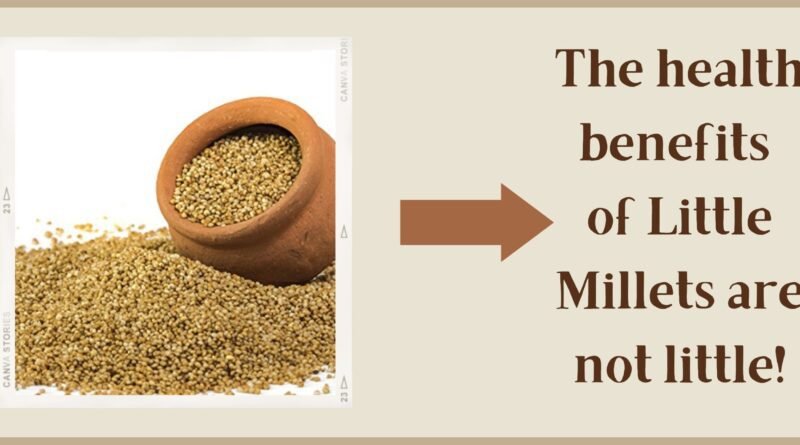Unlocking the Nutritional Powerhouse: Exploring the Health Benefits of Millets
In recent years, there has been a resurgence of interest in traditional grains and cereals, driven by a growing awareness of their nutritional value and health benefits.
Among these ancient grains, millets have emerged as a nutritional powerhouse, offering a host of health benefits that make them a valuable addition to any diet.
From improving heart health to boosting immunity, millets pack a powerful punch when it comes to promoting overall well-being. In this comprehensive guide, we’ll delve into the myriad health benefits of millets and explore how incorporating them into your diet can lead to a healthier, happier you.
What Are Millets?

Millets are a group of small-seeded grains that have been cultivated for thousands of years and are a staple food in many parts of the world, particularly in Asia and Africa.
They belong to the Poaceae family and are characterized by their resilience to drought and harsh growing conditions, making them well-suited to cultivation in arid regions.
Millets come in various types, including pearl millet, finger millet, foxtail millet, sorghum, and more, each with its unique flavor, texture, and nutritional profile.
Rich Source of Nutrients
One of the key reasons why millets have gained popularity is their impressive nutritional profile. These tiny grains are packed with essential nutrients, including carbohydrates, proteins, dietary fiber, vitamins, and minerals.
Millets are particularly rich in micronutrients like iron, magnesium, phosphorus, and B vitamins, making them a valuable addition to a balanced diet. Additionally, millets are gluten-free, making them suitable for individuals with gluten sensitivities or celiac disease.
Promotes Heart Health

Consuming millets regularly has been associated with several heart-healthy benefits. Millets are rich in fiber, which helps lower cholesterol levels and reduce the risk of heart disease. The magnesium content in millets also plays a crucial role in maintaining cardiovascular health by regulating blood pressure and supporting proper heart function.
Furthermore, millets contain antioxidants that help combat inflammation and oxidative stress, further protecting the heart from damage.
Supports Weight Management
For those looking to shed excess pounds or maintain a healthy weight, millets can be a valuable ally. Thanks to their high fiber content, millets promote feelings of fullness and satiety, helping control appetite and prevent overeating.
Additionally, millets have a low glycemic index, which means they cause a gradual rise in blood sugar levels, making them suitable for individuals with diabetes or those looking to manage their blood sugar levels effectively.
Boosts Digestive Health

A healthy digestive system is essential for overall well-being, and millets can play a significant role in supporting digestive health.
The fiber content in millets promotes regular bowel movements, prevents constipation, and supports a healthy gut microbiome. Furthermore, millets contain prebiotics, which serve as food for beneficial gut bacteria, promoting a balanced and thriving microbial community in the intestines.
Enhances Immunity
A strong immune system is your body’s first line of defense against infections and illnesses, and millets can help bolster immunity thanks to their impressive array of nutrients. Millets are rich in vitamins and minerals like zinc, selenium, and vitamin C, all of which play vital roles in immune function.
Regular consumption of millets can help strengthen the immune system, reducing the risk of infections and supporting overall health and well-being.
Provides Energy and Vitality
Millets have long been valued for their energy-boosting properties, making them a popular choice among athletes and individuals with active lifestyles.
These grains are rich in complex carbohydrates, which provide a steady source of energy, keeping you feeling energized and alert throughout the day. Additionally, the protein content in millets helps repair and build muscle tissue, supporting physical endurance and performance.
Manages Blood Sugar Levels

Maintaining stable blood sugar levels is crucial for overall health, especially for individuals with diabetes or insulin resistance. Millets have a low glycemic index, meaning they cause a gradual rise in blood sugar levels, preventing spikes and crashes that can lead to fatigue and cravings. Incorporating millets into a balanced diet can help stabilize blood sugar levels and improve insulin sensitivity, reducing the risk of type 2 diabetes and its complications.
Versatile and Easy to Incorporate
One of the great things about millets is their versatility in the kitchen. These grains can be used in a variety of dishes, from savory to sweet, and can be cooked in numerous ways, including boiling, steaming, roasting, or grinding into flour. Millets can be used to make porridge, pilafs, salads, soups, bread, and even desserts, allowing you to enjoy their nutritional benefits in countless delicious ways.
In conclusion, millets are a nutritional powerhouse that offers a wide range of health benefits. From promoting heart health to supporting digestive function, boosting immunity, and providing sustained energy, millets are a valuable addition to any diet.
Whether you’re looking to improve your overall health, manage your weight, or simply enjoy delicious and nutritious meals, incorporating millets into your diet can help you achieve your wellness goals and lead a healthier, happier life.
So why not unlock the potential of these ancient grains and reap the many rewards they have to offer?




